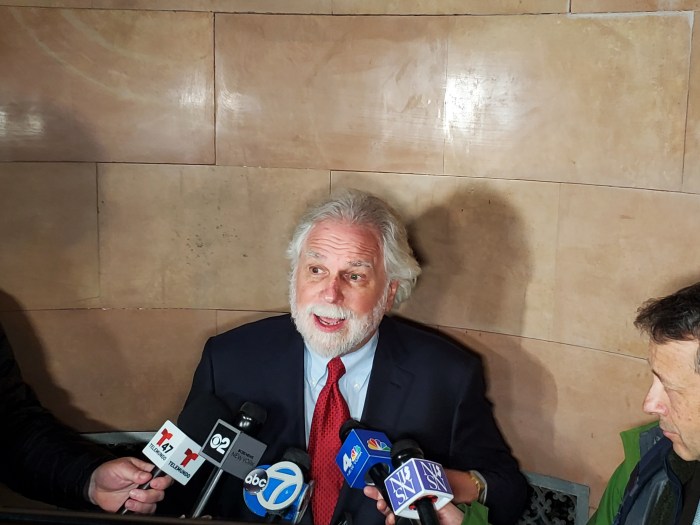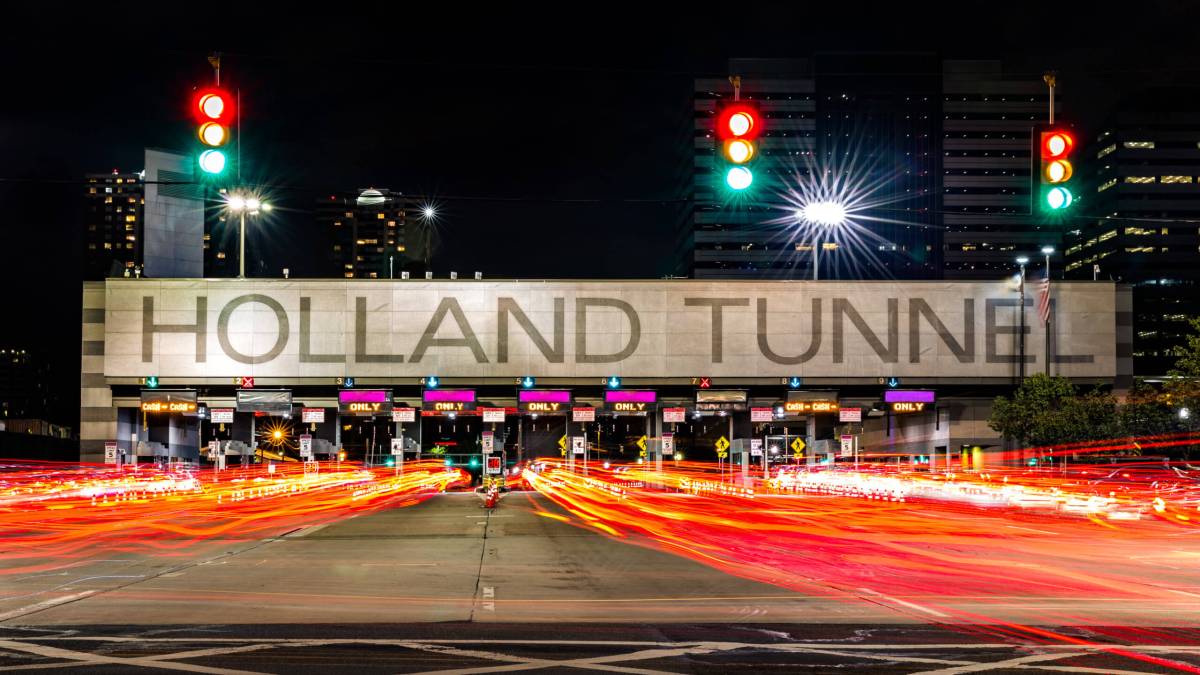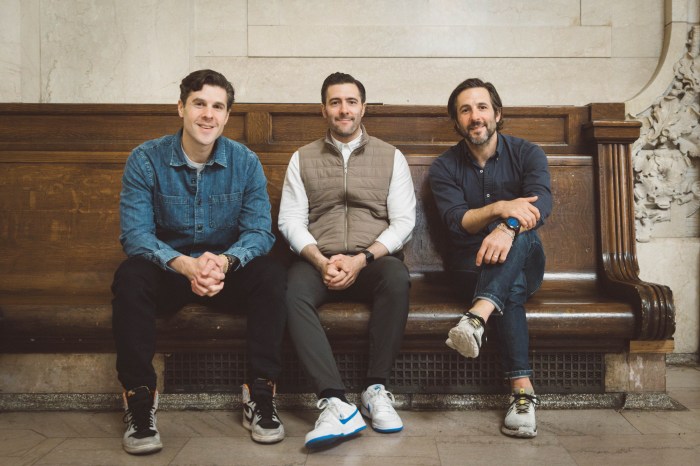A federal judge heard oral arguments from the Biden administration, the MTA, and the state of New Jersey on Wednesday in the Garden State’s lawsuit seeking to overturn congestion pricing, as the fate of the Manhattan tolling program and the mass transit improvements it would fund hang in the balance.
Technically, the object at issue in the lawsuit is whether the Federal Highway Administration (FHWA) undertook a thorough enough environmental review of the program, which was approved last week would levy a $15 toll on most motorists entering Manhattan south of 60th Street, with overnight discounts and crossing credits on bridges and tunnels already fitted with tolls.
The MTA hopes to have the program up and running by June and begin using toll revenue to fund its capital program; new contracts for construction work are now suspended as litigation weaves through federal court.
Randy Mastro, the prominent trial litigator retained by New Jersey Gov. Phil Murphy, told Judge Leo Gordon that the MTA’s environmental assessment was not, in fact, adequate for the “unprecedented” tolling scheme, and called for the court to rescind the FHWA’s approval for it.
The FHWA “worked backwards to reach a predetermined outcome in New York’s favor,” argued Mastro, a former deputy mayor under the Giuliani administration.

The MTA was allowed by the feds to conduct an “environmental assessment” for the program instead of a more thorough “environmental impact statement.” Last year, the feds issued a “finding of no significant impact” on the environment from the proposal, effectively giving the green light provided certain investments were made to mitigate the impacts of increased traffic in the Bronx and other areas as motorists diverted course from the central business district tolling area.
‘Picking its neighbors’ pockets’?
The MTA predicts that by disincentivizing driving and improving mass transit, carbon emissions will go down region-wide, but in the process some areas like sections of the Bronx, especially near the Cross-Bronx Expressway, could experience a localized increase in pollution. As a result, the MTA committed to millions of dollars in mitigation efforts in the Bronx, including for electrifying truck fleets at the Hunts Point produce market and installing air filtration systems at local schools.
Those mitigation efforts, however, should have been extended to New Jersey, particularly parts of Bergen County that would see an increase in truck traffic, argued Mastro, but he contended no specific commitments had been made for New Jersey in the same manner despite the fact Garden Staters will pitch in a significant portion of the $1 billion in annual revenue the MTA expects to generate from the tolling program.
“The MTA has a voracious appetite…for picking its neighbors’ pockets,” said Mastro.
The transit agency and the feds disagreed with that contention, but attorneys couldn’t delineate specific mitigations they planned to fund in the Garden State similarly to the Bronx, despite repeated prodding from Gordon, frustrating the jurist. MTA counsel Mark Chertok, of Sive Paget Riesel, said that New Jersey mitigations would be determined and “fine-tuned” in due time.

Chertok’s co-counsel, Elizabeth Knauer, noted that “regional mitigations” like truck electrification and increased overnight delivery, when traffic is lower and thus trucks would be emitting less, would benefit New Jersey, including its “environmental justice” communities like Newark and Fort Lee.
Furthermore, the MTA says that Bronx stakeholders were more active in securing specific mitigation commitments during negotiations than had New Jersey reps.
“Listening to Mr. Mastro, it becomes clear that for New Jersey, this is about money,” not about mitigating environmental harms, said Chertok.
Following last week’s final approval for the program, with slight tweaks from that approved the MTA’s Traffic Mobility Review Board, the feds are taking a final look at the program before it could potentially go into effect this summer. Mastro contends that this review will be “slapdash” and “back of the envelope,” though FHWA lawyer Greg Cumming said it could theoretically yield a finding that the MTA must conduct a whole new environmental assessment.
The parties will return to court on Thursday, April 4 to continue oral arguments in front of Judge Gordon, who deemed himself an “equal opportunity questioner” and routinely interrupted lawyers for both sides to grill them for specifics.
Meanwhile, the MTA and FHWA will also head to federal court in Manhattan next month to make arguments in a cadre of parallel lawsuits, argued on similar merits, filed by the United Federation of Teachers and Staten Island Borough President Vito Fossella, Rockland County executive Ed Day, and groups of city residents and pols.
MTA Chair Janno Lieber — who attended court in New Jersey on Wednesday and was described by Mastro as “smiling like the Cheshire Cat” — has said he expects all the lawsuits to be resolved in the MTA’s favor before the anticipated June start date.




































